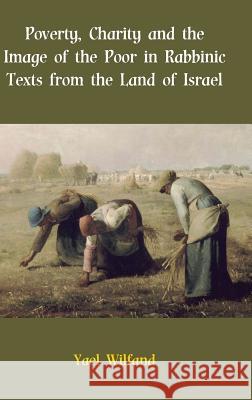Poverty, Charity and the Image of the Poor in Rabbinic Texts from the Land of Israel » książka
Poverty, Charity and the Image of the Poor in Rabbinic Texts from the Land of Israel
ISBN-13: 9781909697003 / Angielski / Twarda / 2014 / 328 str.
Poverty, Charity and the Image of the Poor in Rabbinic Texts from the Land of Israel
ISBN-13: 9781909697003 / Angielski / Twarda / 2014 / 328 str.
(netto: 529,98 VAT: 5%)
Najniższa cena z 30 dni: 556,48
ok. 16-18 dni roboczych
Bez gwarancji dostawy przed świętami
Darmowa dostawa!
In the rabbinic literature from the land of Israel the poor are depicted not as passive recipients of gifts and support, but as independent agents who are responsible for their own behaviour. Communal care for the needy was expected to go beyond their basic needs for food, clothing and shelter; the physical safety of the poor and the value of their time as well as their dignity and self-worth were also included in the scope of charity. In this monograph, Yael Wilfand offers a comprehensive and contextual analysis of major rabbinic texts on poverty and charity composed during the first five centuries of the Common Era in the land of Israel, principally the Mishnah, the Tosefta, the Palestinian Talmud and midrashim. She shows that, for the rabbis, the poor were not necessarily considered outsiders; indeed, some students and rabbis in Palestine may have personally experienced poverty. Wilfand claims that such socio-economic diversity contributed to the thinking of these rabbis, who rarely saw poverty as a result of transgression (in contrast to the Babylonian Talmud). This book presents a number of contrasting viewpoints held by Palestinian rabbis over such questions as: Must communal administrators ensure applicants' eligibility for alms? Should the newly indigent from wealthy families receive exceptional levels of support? Might neighbouring gentiles qualify for economic assistance from Jewish communal sources? By examining Palestinian rabbinic sources within the contexts both of the hegemonic Greco-Roman (later, Christian) milieu and of the biblical heritage, this volume offers an absorbing account of some ancient approaches to timeless social challenges.











